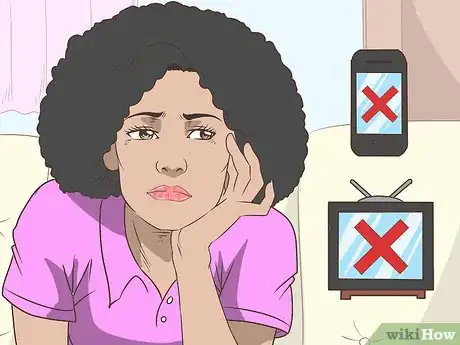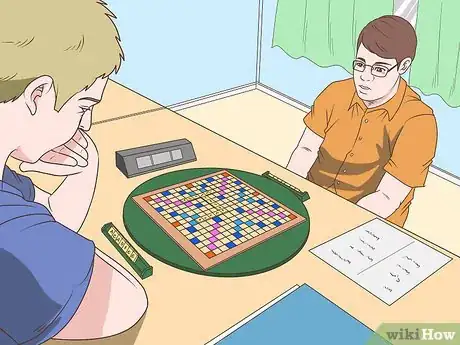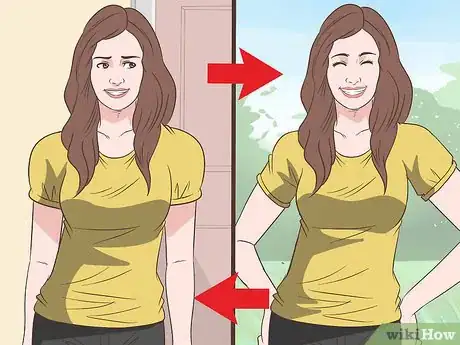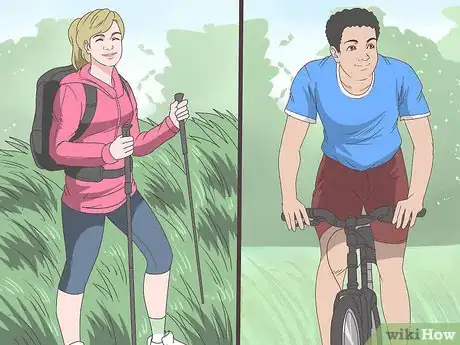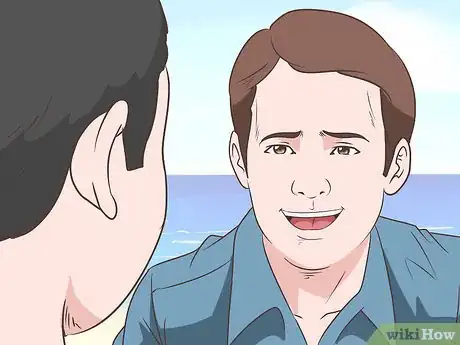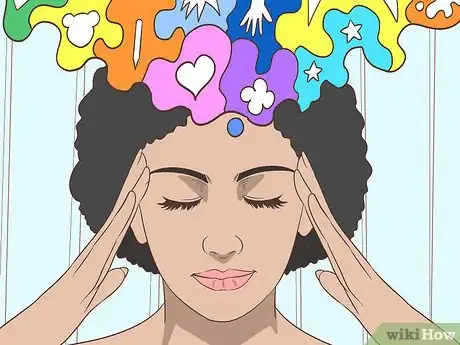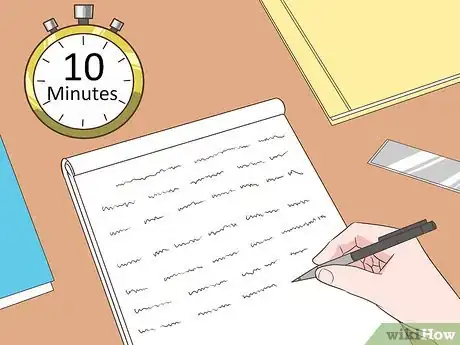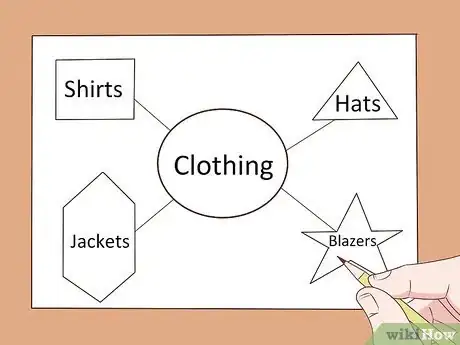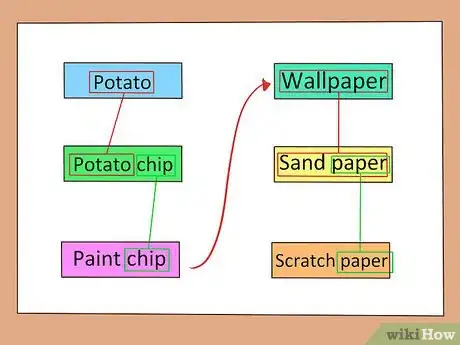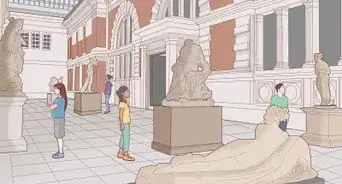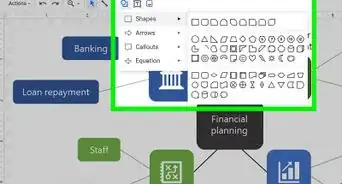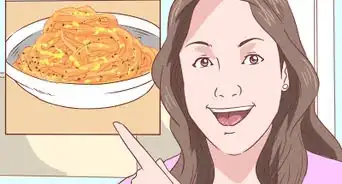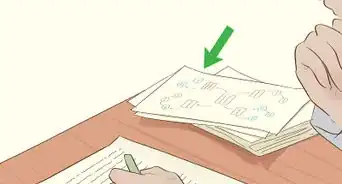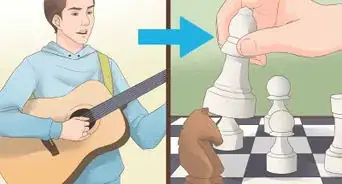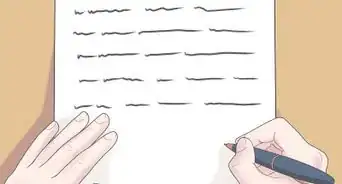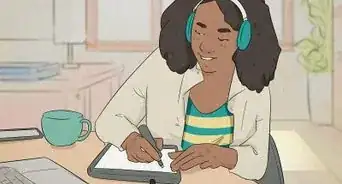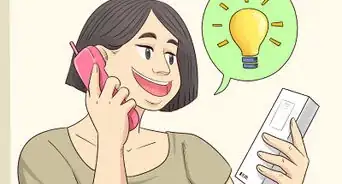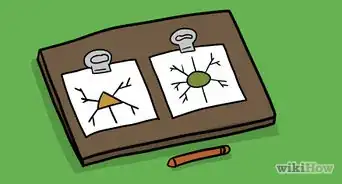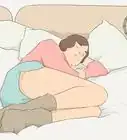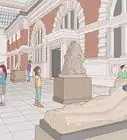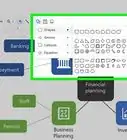This article was co-authored by Dan Klein. Dan Klein is an improvisation expert and coach who teaches at the Stanford University Department of Theater and Performance Studies as well as at Stanford's Graduate School of Business. Dan has been teaching improvisation, creativity, and storytelling to students and organizations around the world for over 20 years. Dan received his BA from Stanford University in 1991.
This article has been viewed 59,067 times.
Creativity is essential not only for artists, writers, musicians, etc., but also for business people, students, and many others. Cultivating your creative powers takes time and effort, but can also be lots of fun. Keep an open and an inquisitive mind, and you’ll be on your way to becoming a creative genius!
Steps
Developing Habits to Foster Creativity
-
1Expose yourself to new ideas and information. In order to produce creative ideas yourself, you will need a flow of new ideas.[1] Seeing the work of others might inspire you and give you ideas to challenge, change, or explore further. Try:
- Reading lots of books
- Keeping up with world news
- Subscribing to one or more magazines on topics that interest you
- Watching a documentary film on a topic you are unfamiliar with
- Visiting a museum
-
2Have a place to record your ideas. You will need to be ready to write or sketch out an idea the moment inspiration strikes. For this reason, make sure to always have a sketchbook or notepad with you at all times.[2] [3]
- When you get an idea, try putting it down quickly in your note/sketchbook. You can always come back later and revise it.
- Try making yourself write or draw every day in your notebook, even if you don’t think you have any new ideas. In the long run, making a habit of working some in your notebook every day will lead to more creativity.
Advertisement -
3Let yourself be bored. In the modern world, it is very easy to be distracted by television, smartphones, social media, and a million other things. However, in order to think creatively, it is very important to sometimes be bored. Being bored causes your brain to work in new ways, as it seeks stimulation. This leads to fresh ideas.
- Give yourself a "device free" hour each day, or day per week
- Set aside some time each week in which you don't have anything scheduled
- When you start to feel bored, such as when waiting for a subway, resist the urge to check a smartphone or other distraction. Instead, observe the world around you.
-
4Play.[4] Activating your sense of fun can lift your mood, stimulate different parts of your brain, and boost your creativity. For example, try playing:
- With children’s toys, such as blocks
- A favorite board or card game
- Charades
- Scrabble
Learning from New Experiences
-
1Get moving.[5] Simply changing your position or location can boost your creativity by giving you new surroundings, fresh sights, and stimulation. For example:
- If you are inside, try going outside. If you are outside, try going inside.
- If you are working in a big room, move to a small room. If you are working in a small room, move to a big room.
- Visit a museum, go for a walk, go bowling, or find some other location you enjoy.
- If you are sitting, try lying on your back on the floor.
-
2Seek out new experiences.[6] Creative people are interested in new sights, sounds, places, etc. Getting out of your comfort zone is an easy way to get a fresh perspective, and go back to the problem or project you are working on with a renewed sense of vigor.
- Have lunch at a new restaurant, or try a kind of food you’ve never had before.
- Talk a walk in an area you’ve never visited.
- Watch a film in a language you can’t understand.
- Read a book on a topic you know nothing about.
-
3Pick up a new skill.[7] One characteristic of creative people is that they are always learning. Getting new skills, especially in an area separate from the one you are working in, will broaden your mindset and give you new ways of thinking through ideas.
- Learn how to play a musical instrument
- Practice a foreign language
- Try cooking a new cuisine
- Take up a new hobby, such as knitting, woodworking, or painting
- Learn how to play a sport or game you’ve never tried before
-
4Talk to other people and learn about what they do.[8] Learning about others and their ways of seeing things is a great way to enrich your own ways of seeing the world your creative thinking. Make time to talk to lots of different kinds of people, ask them questions about their work and ideas, or just chat.
- Have lunch with a coworker you haven’t had the chance to really talk with before. Ask him or her about the work he or she does.
- Strike up a conversation with a stranger on the bus, train, plane, etc.
-
5Have imaginary conversations.[9] Your own imagination can also be a great way of gaining new experiences. Pretend that you are talking to someone you find fascinating or a role model, such as a famous or influential person from history. Close your eyes, and discuss with this person whatever topic comes to mind.
Brainstorming
-
1Have an open mind. Being creative requires you to suspend judgment and take risks.[10] If you start judging ideas before you even get started, you will crush your creative spirit. Let your ideas flow, and only worry about editing them once you get them out.
-
2Freewrite.[11] Freewriting is an activity where, as the name suggests, you write freely: whatever comes to mind, write it down. Write nonstop for a certain amount of time (for instance, 10 minutes). By writing without stopping, no matter what comes out, after a few minutes you will start to access new and fresh ideas that you wouldn’t have thought of at first.
-
3Try mind mapping.[12] A mind map is a way of exploring your ideas in a free way. It requires visual organization and logical organization, which engages your whole brain and encourages creativity.
- Start with a piece of paper and pen or marker. Write down the concept you are working (for example, “Clothing”) with in the middle of the paper and put it in a shape like a circle or square.
- Draw lines off of the center to create new shapes with related concepts. For example, you could draw a line from “Clothing” to have a space for “Hats” and another with a space for “Shirts”
- Draw new lines off of these subcategories to make sub-sub-categories. For example, draw a line for “Flannel” off of “Shirts.”
-
4Practice looking at things in new ways. One way to get your creative juices flowing is to challenge accepted ways of understanding things. You can do simple exercises to practice this, as a way of getting ready to think creatively about a problem or project. For example, take an everyday object, like a paper clip, and think of ten new uses for it.[13] Normally, a paper clip is used to fasten loose papers together. However, you could also:
- Stick paperclips in the ends of corn so you can eat it off the cob
- Use a chain of paperclips as a necklace
- Use a paperclip to open a stubborn seal, such as on a medicine bottle
- Use a paperclip as an instrument to paint intricate designs on your fingernails using nail polish.
-
5Try free association or “toppling.” Free association is a way of drawing new connections between things. It can be used as a practice exercise to boost creativity or when you are working on a project. “Toppling” is one technique to practice free association:[14] [15]
- Think of a word, any word, such as “potato.”
- Think of another word that is related to it, but not the same kind of thing (in this case, not a vegetable). For example, “chip” (“potato chip”).
- Continue by again making an association between the last word and a new one, such as “paint” (“paint chip”).
- Repeat the same step to find a new word, such as “wallpaper” (an alternative to paint)
- Keep repeating this procedure, always trying to find words that are related in different ways.
-
6Try forming analogies.[16] Analogies are another way of drawing fresh connections between things. These require you to think about similarities between objects or concepts, often ones that are not related in an obvious way. They often take the form of “X is to Y as A is to B.” Start by thinking of objects, and form analogies:
- “A potato is to a french fry as a tree is to a board” (french fries are made from parts of potatoes; boards are made from parts of trees)
- “A tree is to a forest as sand is to a desert” (forests are made of lots of trees; a desert is made of lots of sand)
Expert Q&A
Did you know you can get expert answers for this article?
Unlock expert answers by supporting wikiHow
-
QuestionWhat makes a creative person?
 Dan KleinDan Klein is an improvisation expert and coach who teaches at the Stanford University Department of Theater and Performance Studies as well as at Stanford's Graduate School of Business. Dan has been teaching improvisation, creativity, and storytelling to students and organizations around the world for over 20 years. Dan received his BA from Stanford University in 1991.
Dan KleinDan Klein is an improvisation expert and coach who teaches at the Stanford University Department of Theater and Performance Studies as well as at Stanford's Graduate School of Business. Dan has been teaching improvisation, creativity, and storytelling to students and organizations around the world for over 20 years. Dan received his BA from Stanford University in 1991.
Theater & Performance Studies Lecturer
References
- ↑ http://www.lifehack.org/articles/featured/how-to-become-a-creative-genius.html
- ↑ https://www.brainpickings.org/2012/11/23/laurence-king-sketchbooks/
- ↑ http://www.lifehack.org/articles/featured/how-to-become-a-creative-genius.html
- ↑ http://www.inc.com/christina-desmarais/25-ways-to-be-more-creative.html
- ↑ http://www.bbc.com/future/story/20140314-learn-to-be-creative
- ↑ http://www.lifehack.org/articles/featured/how-to-become-a-creative-genius.html
- ↑ http://www.inc.com/christina-desmarais/25-ways-to-be-more-creative.html
- ↑ http://www.inc.com/christina-desmarais/25-ways-to-be-more-creative.html
- ↑ http://www.lifehack.org/articles/featured/how-to-become-a-creative-genius.html
- ↑ http://www.edutopia.org/blog/creativity-in-classroom-trisha-riche
- ↑ http://www.inc.com/christina-desmarais/25-ways-to-be-more-creative.html
- ↑ http://www.lifehack.org/articles/featured/how-to-become-a-creative-genius.html
- ↑ http://www.inc.com/christina-desmarais/25-ways-to-be-more-creative.html
- ↑ http://www.bbc.com/future/story/20140314-learn-to-be-creative
- ↑ http://www.inc.com/christina-desmarais/25-ways-to-be-more-creative.html
- ↑ http://www.inc.com/christina-desmarais/25-ways-to-be-more-creative.html


